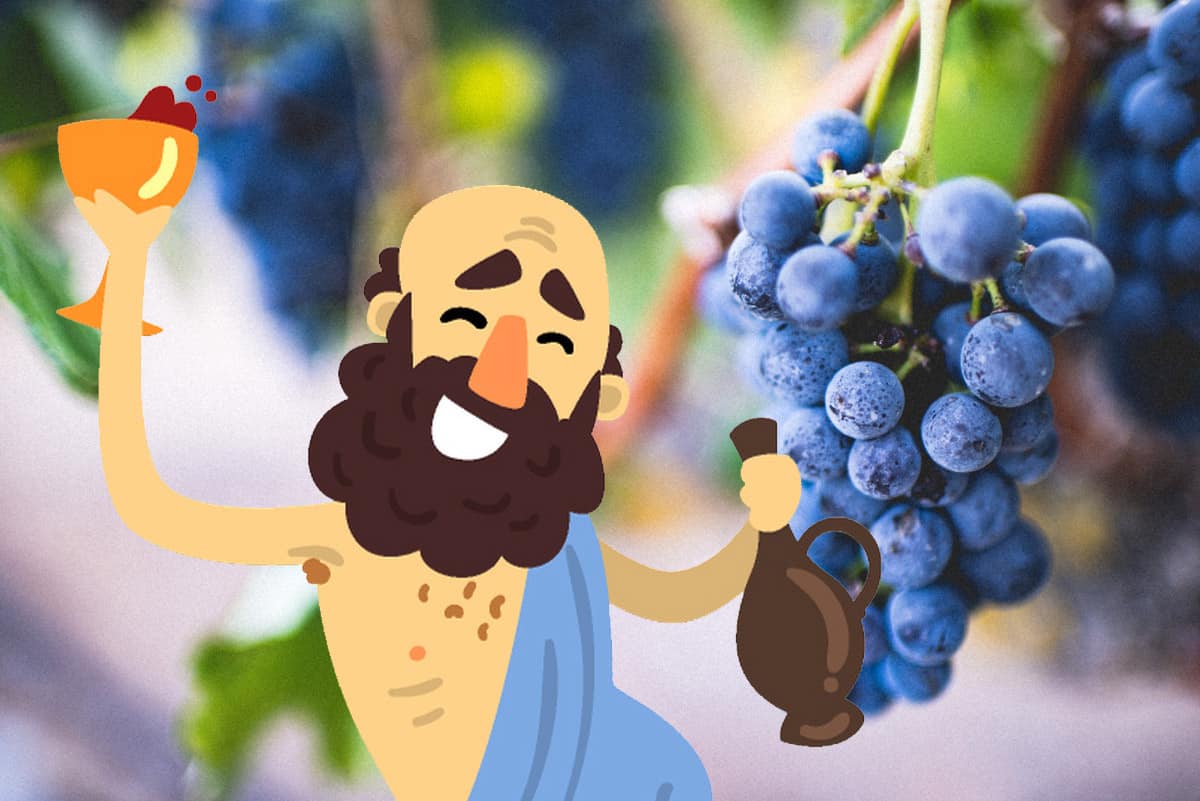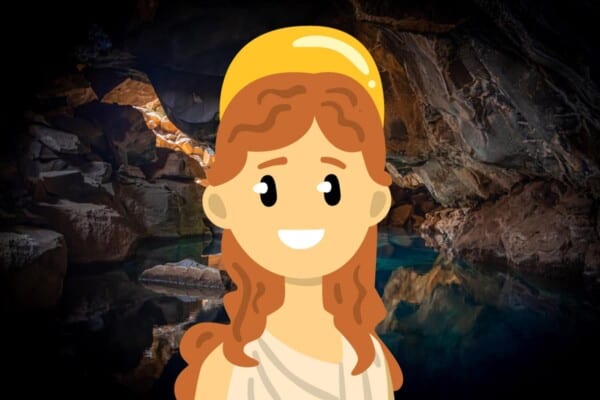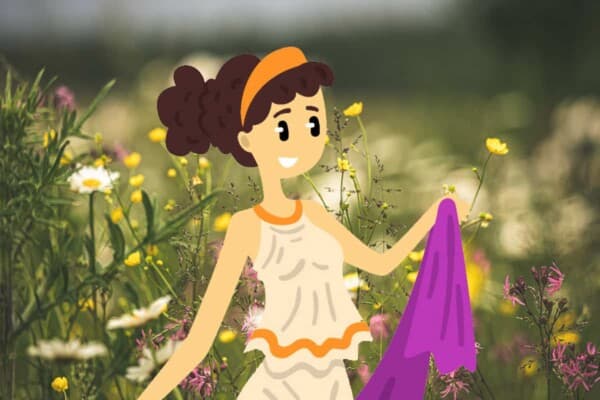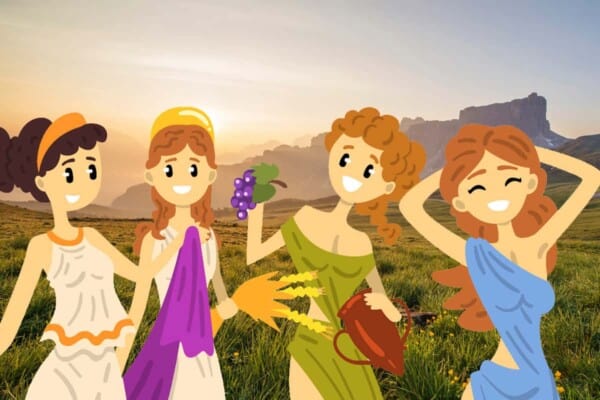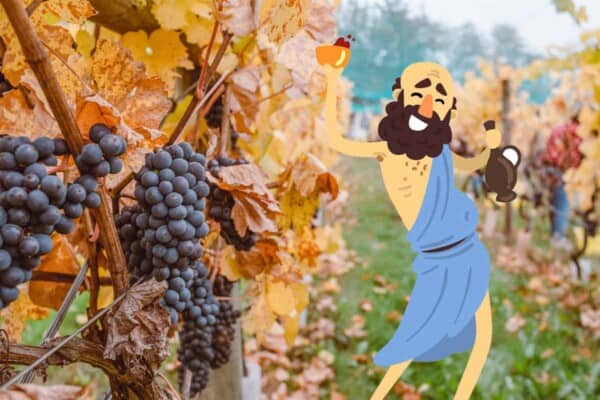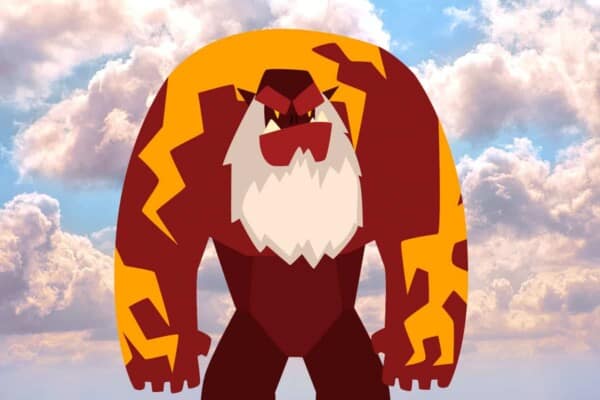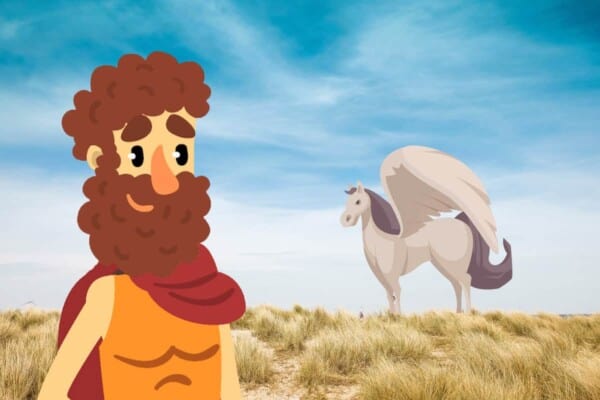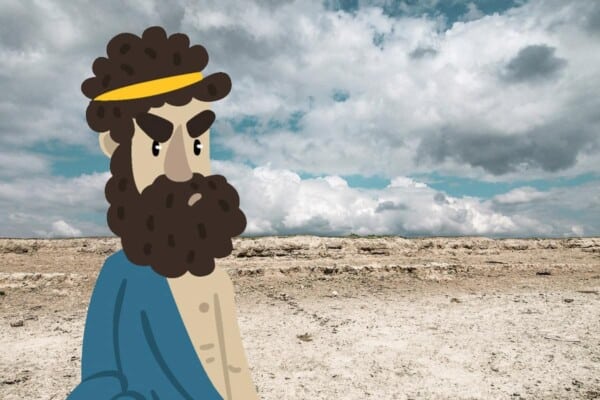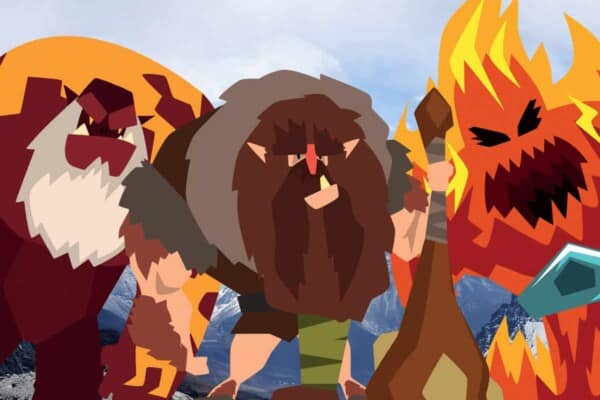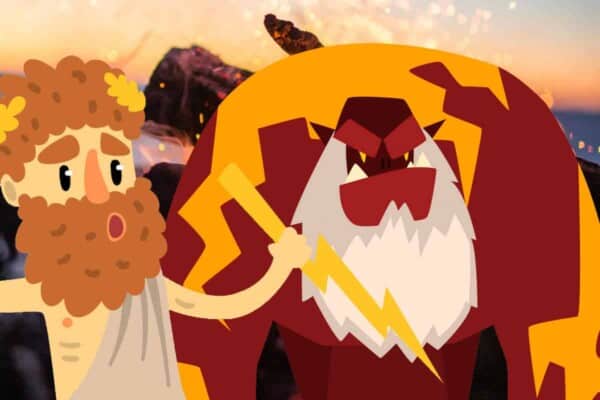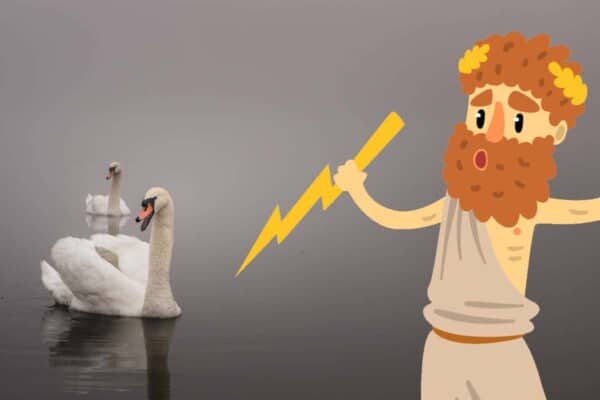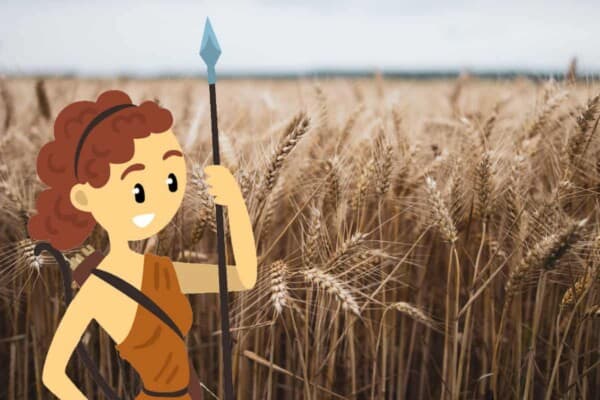Dionysus was unique amongst the Olympians in that his mother was human. He was the god of wine, revelry, and ecstatic madness. He also played a central role in Orphic myth, where he was said to be reborn twice – as a son of Zeus-Hades and Persephone, and then as an Olympian. He was also the patron of the ancient Dionysian Mysteries, a cult ritual involving drink, dance, and mind-altering drugs.
Dionysus was the thirteenth Olympian, replacing Hestia in many myths as one of the Twelve. The following myths are stories of his godhood across Greek lore.
Dionysus Myths and Stories
1. Son of Zeus and Semele
Semele was the daughter of the hero, Cadmus, and she served as a priestess to Zeus. Zeus took notice and desired her, and he came to earth in the form of a man to court her. The two became lovers, and Semele became pregnant.
Hera discovered the affair and appeared to Semele as a woman and a friend. She convinced Semele that, if Zeus loved her, he would show her his true form. Unaware of this, when Zeus next saw Semele, he promised her one request – anything she wanted. Semele, tricked by Hera, insisted she see Zeus as a god. Zeus tried to dissuade her, but she would not change her mind.
Zeus revealed his god form to Semele, and the sight was too much for her. Her eyes burned and she died as her body was overwhelmed. Zeus saved the baby from her belly and sewed him into his own thigh. There, Dionysus gestated until he was ready to be born.
2. Rescuing Semele
Dionysus was accepted by the gods of Olympus and either shared the throne of Hestia or was given the seat by his aunt. As he grew, Zeus told him stories of his mother, who Zeus had loved. When he was an adult, Dionysus decided he must meet her.
He traveled to the Underworld to entreat his uncle, Hades, to return her to him. When he arrived at the mouth of the Underworld, he was confronted by the three-headed dog guardian, Cerberus. With the help of his half-brother, the Greek hero Heracles, Dionysus overcame the beast and entered the Underworld.
Dionysus found his mother and led her back to the surface, emerging from the waters and proving his godhood to those who doubted him. He then ascended Olympus with her and gave her a second life as a goddess, renaming her Thyone. She became the goddess of frenzies.
3. Troubled Childhood
When Dionysus was an infant, Zeus knew that he had to send his son from Olympus to escape Hera’s wrath. He gave him over to the care of Hermes, the messenger god, who promised to find a good foster home for his half-brother.
Hermes took Dionysus first to the river nymphs known as the Lamides, the daughters of Lamos. They took the child and loved and nursed him. However, when Hera discovered where he hid, she cursed the nymphs with madness. They attacked the infant, intent on killing him. Hermes discovered this and raced to their home, where he rescued Dionysus.
After this, Hermes took Dionysus to Ino, the sister of Semele and queen of Boeotia. Ino agreed to raise her nephew alongside his cousins, Learchus and Melicertes. She and Hermes disguised the child as a girl to protect him from Hera. Ino taught Dionysus the mysteries. However, Hera discovered him after a few years and sent madness to Ino’s husband, Athamas.
Athamas went on a rampage. He killed Learchus then pursued Ino to kill her and their other son as well. Ino threw herself an Melicertes into the sea, killing them both. They were later reborn as gods.
Hermes rescued Dionysus yet again and brought him to his grandmother, the Titaness Rhea. Rhea raised the child to manhood before returning him to Olympus.
4. A Wandering God
As a man, Dionysus was the first to learn how to extract the juice from the grapevine and ferment it into wine. When he tried to share this knowledge, Hera cursed him with madness and sent him aimlessly wandering throughout the world, unaware of his own godhood.
Dionysus was eventually found by Rhea, who cured his madness and taught him rituals. When he left Rhea, he continued to travel, exploring Asia to teach mankind the secrets of wine. He settled in India for several years, finding the city of Nysa near the Indus River.
5. Lover of Ampelos
On his wanderings, Dionysus befriended Ampelos, who was a satyr, a kind of nature spirit. Ampelos helped Dionysus gather grapes and became his assistant in wine-making. Dionysus and Ampelos fell in love and became a couple.
There are two stories of the death of Ampelos. In the first, the satyr insulted the moon goddess, Selene. Selene sent a bull, which gored Ampelos to death. In the second story, Ampelos simply fell while gathering grapes from the vine.
A devastated Dionysus performed a godly tribute to his lover. In one story, he turned Ampelos into the first grape vine, from which he squeezed the sweetest wine. In another, he cast Ampelos amongst the stars, where the satyr became the constellation Vindemitor, the grape-gatherer.
6. A Triumphant Return
Dionysus returned to Greece after his travels with a procession of followers. They were known as the Thiasos, and they delighted in revelry, ecstasy, and willing madness. The female members of the retinue were known as the Maenads.
The Maenads were human, and they replaced the nymphs who were more normally a part of a god’s retinue. However, many nymphs, nature spirits, and even some gods were members of the Thiasos. In some stories, this included the ancient god Pan.
Because of this, Dionysus was known as the first to hold a procession of triumph.
7. The Punishment of Pentheus
As well as Ino, Semele had two more older sisters – Agave and Autonoe. The three living sisters lived in Thebes, which was ruled by Agave’s son, Dionysus’s maternal cousin Pentheus. When Dionysus returned to Thebes, all of his aunts and his cousins expressed doubt to his divinity – even Ino, who had raised him. His maternal grandparents – Cadmus and the goddess Harmonia – also denied him.
The prophet Tiresias warned Dionysus’s maternal family that they must heed the god. They denied the warnings and denounced Dionysus for the madness of the Maenads.
As punishment, Dionysus brought madness upon Pentheus. He then invited him to watch the rituals of the Maenads. Pentheus hid in a tree, hoping to witness an all-female orgy. The Maenads saw and attacked him. Agave and her sisters, also struck by ecstatic madness, joined in the attack.
After Pentheus was dead, Agave chopped off his head and mounted it on a pike. She presented the trophy to her father, Cadmus. Then Dionysus appeared in his god form, and he banished his aunts and transformed his grandparents into serpents.
8. Kidnapped by Pirates!
One day, Dionysus was sitting by the seashore. Some sailors saw him and mistook him for a human prince. They decided to capture him to make them a slave, sell him into slavery, or hold him for ransom. They tried to bind him in ropes, but every time, the rope would fall away. No binding would stay.
The helmsman of the ship, Acoetes, tried to get his fellow sailors to stop. They ignored him and dragged Dionysus on board. Dionysus turned into a lion and then summoned a bear onto the deck which slaughtered the sailors. Some jumped overboard and were turned into dolphins. The only human survivor was Acoetes.
Later, Dionysus hired a pirate ship to take him to Naxos. The pirates decided to double cross him and instead sailed toward Asia, where they planned to sell him as a slave. Dionysus responded by turning the mast and oars into snakes, then filling the boat with ivy. He made mystical flutes play which drove the sailors mad. They all jumped overboard and were turned into dolphins.
9. Saving Ariadne
Ariadne was the daughter of Minos of Crete, who fell in love with the hero Theseus and helped him traverse the labyrinth to slay the Minotaur. Theseus, however, abandoned Ariadne on an island while she was asleep. Dionysus found and rescued Ariadne, and the two fell in love.
Dionysus married Ariadne and the two had several sons. Their three most significant were Oenopion, who stabbed out the eyes of Orion for attempting to rape his daughter, Staphylos, and Thoas.
Sadly, Ariadne was killed by the hero Perseus during a war between Perseus and Dionysus.
10. King Midas and the Golden Touch
Midas was a king of Phrygia. One day, Dionysus’s teacher and friend, Silenus, went missing. Midas found him and cared for him, restoring him back to health before returning him to Dionysus.
Dionysus was thrilled and told Midas that he may have any boon he wished as a reward. Midas was overwhelmed by greed and requested that everything he touch turn to gold. Though Dionysus warned him to choose something else, Midas insisted.
Soon, Midas realized his folly. He could not eat or drink; he could not sleep comfortably. His daughter embraced him and she, too, was turned to gold.
The king tried to rid himself of the golden touch. He begged Dionysus to save him from starvation. Dionysus took pity upon him and sent him to wash in a river, which took the golden touch away.
11. Father of Priapus
Dionysus spent some time as a consort of his fellow Olympian, the love goddess Aphrodite. The two made love and she bore him a son, Priapus. In some versions, Priapus’s mother is instead Chione, daughter of the north wind.
Hera, who was furious at Aphrodite for a slight and also hated Dionysus, cursed Priapus while he was still in Aphrodite’s womb. The child was fated to be ugly, mean-spirited, and suffer from erectile dysfunction. Though he would be filled with lust, he would never be able to keep an erection during intercourse.
The gods sent Priapus to earth, where he was raised by shepherds. Later, he attempted to rape the goddess Hestia, but a donkey brayed and rid him of his erection. He also tried to rape a woman named Lotis, but the gods transformed her into a plant.
Later, a cult of worship sprung up around Priapus, much as it had around his father, Dionysus. Priapus became a fertility god and also a protector of livestock, farmland, and fruits. Followers of the Priapic cult usually depicted him with a huge penis which is permanently erect.
12. The Rape of Aura
Aura was the goddess of the breeze and the daughter of Boreas, the north wind or the Titan Lelantos. She was a companion of Artemis and she entirely spurned men and love in general. She teased Artemis one day that the hunting goddess’s breasts were round and voluptuous, implying that Artemis was unchaste. In response, Artemis appealed to Nemesis to help her get revenge.
Nemesis cast madness upon Dionysus, sending him to rape Aura. He drugged her with wine and then raped her while she slept, resulting in her loss of virginity and pregnancy. After she woke, she did not know who had violated her, and so she entered a rage and began to slay every man in sight. When she learned she was pregnant, she tried to kill herself, but failed.
She gave birth to twin boys, one of whom was Iacchus. She gave them to a lioness who would not eat them, and so Aura tossed the other twin in the air and ate the remains. Artemis saved Iacchus. Aura then killed herself by drowning in a river. Zeus turned her into a spring.
In some Orphic stories, Iacchus is seen as the third Dionysus, after Zagreus (the son of Persephone) and the Olympian Dionysus. Iacchus was also sometimes an aspect of Dionysus rather than his son.
Occasionally, rather than Aura, the mother of Iacchus was either Persephone or Demeter.
Contents

